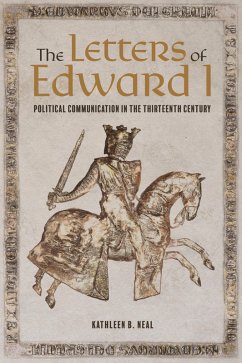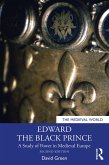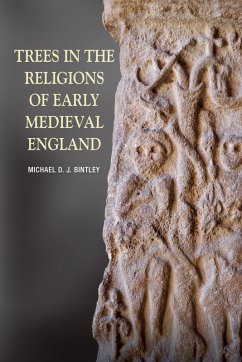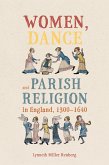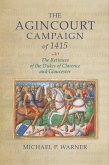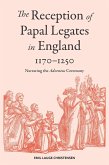Detailed examination of the letters of Edward I reveals them to be powerful and sophisticated political tools.
As formulaic in appearance as they are abundant in the archives, it is easy to underestimate the power of the letters generated by medieval governments, but these acts of communication were more than mere containers of information. Operating at the intersection of the spoken and the written, the performed and the observed, they produced a discourse that maximized royal authority and promoted solidarity between sender and recipient.
This book situatesletters within medieval theories of composition and habits of reception, to argue that even mundane letters of governance were rhetorical texts. It focuses on the example of Edward I of England, whose rhetorical prowess was noted,often critically, by contemporaries. It shows how the king's correspondence varied in tone, vocabulary and structure across his reign and between recipients, revealing an unexpected dynamism of political discourse. Moving betweenhistorical context and close readings of individual letters, this volume identifies letter-writing as an art through which the king and his government attempted to negotiate and mould relationships with political communities anddiplomatic interlocutors alike.
KATHLEEN B. NEAL is Lecturer in History at Monash University.
As formulaic in appearance as they are abundant in the archives, it is easy to underestimate the power of the letters generated by medieval governments, but these acts of communication were more than mere containers of information. Operating at the intersection of the spoken and the written, the performed and the observed, they produced a discourse that maximized royal authority and promoted solidarity between sender and recipient.
This book situatesletters within medieval theories of composition and habits of reception, to argue that even mundane letters of governance were rhetorical texts. It focuses on the example of Edward I of England, whose rhetorical prowess was noted,often critically, by contemporaries. It shows how the king's correspondence varied in tone, vocabulary and structure across his reign and between recipients, revealing an unexpected dynamism of political discourse. Moving betweenhistorical context and close readings of individual letters, this volume identifies letter-writing as an art through which the king and his government attempted to negotiate and mould relationships with political communities anddiplomatic interlocutors alike.
KATHLEEN B. NEAL is Lecturer in History at Monash University.
Dieser Download kann aus rechtlichen Gründen nur mit Rechnungsadresse in A, D ausgeliefert werden.

